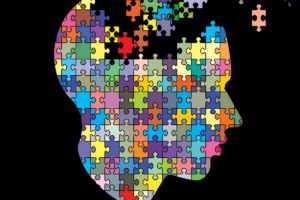
Diagnosed with Cancer? Your two greatest challenges are understanding cancer and understanding possible side effects from chemo and radiation. Knowledge is Power!
Learn about conventional, complementary, and integrative therapies.
Dealing with treatment side effects? Learn about evidence-based therapies to alleviate your symptoms.
Click the orange button to the right to learn more.
- You are here:
- Home »
- Blog »
- side effects ID and prevention »
- Brain Health- Omega-3 Fish Oil
Brain Health- Omega-3 Fish Oil

The fact is no matter whether you have a healthy fully functioning brain, or if you have a cognative issue like chemo brain or a mental illness, fish oil helps the overall functioning of the brain and is an important suppliment.
Omega-3 fatty acids aka Fish oil is an increasingly popular superfood because of the properties of Omega 3 fatty acids. They are a suppliment that can only be found in food. They’re produced from fish and some nuts and have positive effects on cholesterol, heart health, and rheumatoid arthritis. Mayo Clinic reports more extensively here:
“Fish oil is a dietary source of omega-3 fatty acids. Your body needs omega-3 fatty acids for many functions, from muscle activity to cell growth. Omega-3 fatty acids are derived from food. They can’t be manufactured in the body. Fish oil contains two omega-3s called docosahexaenoic acid (DHA) and eicosapentaenoic acid (EPA). Dietary sources of DHA and EPA are fatty fish, such as salmon, mackerel and trout, and shellfish, such as mussels, oysters and crabs. Some nuts, seeds and vegetable oils contain another omega-3 called alpha-linolenic acid (ALA).”
Aside from the positive effects that fish oil has on the body, studies have also shown that fish oil is integral to brain function and development. This article on Healthline describes a few examples of these neutropic effects.
“Several studies have correlated pregnant women’s fish intake or fish oil use with higher scores for their children on tests of intelligence and brain function in early childhood These fatty acids are also vital for the maintenance of normal brain function throughout life. They are abundant in the cell membranes of brain cells, preserving cell membrane health and facilitating communication between brain cells. When animals are fed diets without omega-3 fatty acids, the amount of DHA in their brains decreases, and they tend to experience deficits in learning and memoryIn older adults, lower levels of DHA in the blood have been associated with smaller brain size, a sign of accelerated brain aging. Clearly, it is important to make sure you get enough omega-3 fatty acids to avoid some of these detrimental effects on brain function and development.”
What’s more is that this article mentions an improvement of brain function when those with cognitive conditions take fish oil. An example of one of these conditions is the loss of cognitive function like memory after chemotherapy.
“several studies have suggested that taking fish oil supplements may improve brain function in people with more mild types of brain conditions like mild cognitive impairment (MCI) or age-related cognitive decline. One study gave 485 older adults with age-related cognitive decline either 900 mg of DHA or a placebo every day. After 24 weeks, those taking DHA performed better on memory and learning tests. Based on this research, it appears that fish oil supplements may be most beneficial when people start taking them in the early stages of brain function decline.”
So not only does fish oil help maintain your brain, it can potentially improve your brain function after a condition, that is, if you use fish oil early and often. Another important aspect of cognitive health is mental health, which can also be improved with the use of fish oil. Mental illness can be looked at as a mechanical issue, just like the symptoms of chemo brain or other causes for cognative decline, and fish oil help illivate these symptoms. The above article mentions the effect fish oil has on depression.
“Finding treatments for depression and other mental health disorders continues to be a public health priority, and the desire for non-medicinal interventions to improve symptoms will likely increase. People have long thought that fish oil is linked to improvements in mental health, but does the research actually back up this claim? A recent review of clinical studies concluded that taking fish oil supplements improved depressive symptoms in people with depression, with effects comparable to those of antidepressant medications. However, the greatest improvements in depressive symptoms seemed to occur in people who were also taking antidepressants.
Additionally, people tended to see greater effects when the fish oil supplement contained higher doses of EPA. It is still unclear how EPA and omega-3s improve depressive symptoms. Researchers have suggested it may be related to their effects on serotonin and serotonin receptors in the brain. Others have proposed that omega-3s from fish oil could improve depressive symptoms through anti-inflammatory effects.
Additional evidence suggests that fish oil may improve other mental health conditions like borderline personality disorder and bipolar disorder. However, more high-quality research is needed before the medical community can make definitive recommendations.”
As was written in this post, there is a growing interest in fish oil as the medical world looks for more natural treatments for cognitive health. Although more research needs to be done, it seems that theres clearly a link between dosing fish oil and fixing some depressive symptoms. The fact is no matter wether you have a healthy fully functioning brain, or if you have a cognative issue like chemo brain or a mental illness, fish oil helps the overall functioning of the brain and is an important suppliment.
Alexander Emerson
- Writer
- Cancer Caregiver
Brain health has been a challenge of mine since I underwent high-dose, aggressive chemotherapy in ’95. One of the many lessons I’ve learned while researching the issue of brain health is that, like omega-3 fatty acids, there are a host of evidence-based, non-toxic foods and supplements that enhance brain health.
- Multiple Myeloma Side Effects- Chemobrain, Brain Health
- Cranberries- Heart, Brain, Bladder, Immune Health
- Reduce Dementia Risk- Non-Toxic
- Managing Brain Damage in Head/Neck Cancer
- Small Cell Lung Cancer Therapy- Whole Brain Radiation
I am a long-term cancer survivor just getting over chemotherapy-induced cognitive dysfunction aka chemo brain. Though I’ve never been formally diagnosed, I think I suffer from mild PTSD as well as chemotherapy-induced cardiomyopathy. And finally, as a man in my sixties, I worry about dementia.
Needless to say, omega-3 fatty acids are one of my main go-to nutritional supplements. Certainly I look to food sources first and foremost for my omega-3s but since I don’t consume enough fish oil for my needs, I supplement as well.
David Emerson
- Cancer Survivor
- Cancer Coach
- Director PeopleBeatingCancer


